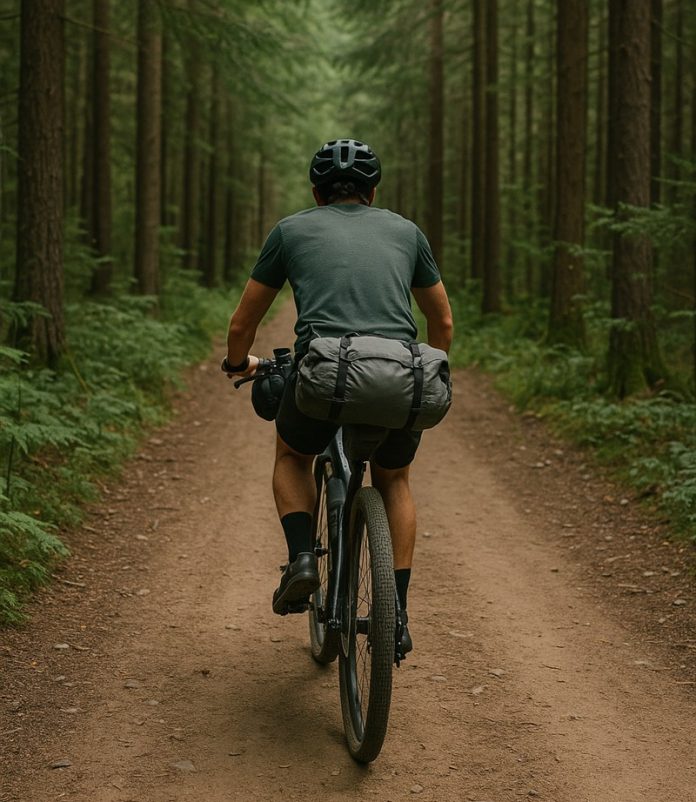Introduction
For those passionate about long-distance cycling and bikepacking, the Tour Divide stands as one of the most legendary and challenging endurance events in the world. Stretching across an entire continent, this self-supported race covers thousands of miles through some of the most remote and rugged terrain in North America. The Tour Divide is not just a race; it’s a journey into the heart of wild landscapes, mental resilience, and the true spirit of adventure.
Whether you’re a seasoned ultra-endurance rider or a bikepacking enthusiast dreaming of big challenges, understanding what the Tour Divide entails is essential. From its rich history to the gruelling route it follows, this guide dives deep into what makes the Tour Divide a monumental event in the world of ultra-cycling.
History of The Tour Divide
The Tour Divide has its roots in the Great Divide Mountain Bike Route (GDMBR), originally established by the Adventure Cycling Association in the 1990s. The route was designed to offer the longest off-pavement cycling route in the world, spanning the entire length of the Continental Divide.
The first official race following the GDMBR took place in 2008, building on the success of earlier informal time trials like the Great Divide Race. The concept was simple but brutal: start in Banff, Alberta, and finish in Antelope Wells, New Mexico, following the Continental Divide as closely as possible — all without any outside support.
Since then, the Tour Divide has grown in reputation and participation, drawing cyclists from all over the world who are eager to test their endurance, self-reliance, and navigation skills. Riders must carry all of their own gear, manage their own resupply, and navigate changing weather, terrain, and physical exhaustion over the course of several weeks.
Location of the Event
The Tour Divide takes place across two countries and five U.S. states, running from Banff, Alberta in Canada to Antelope Wells, a small border crossing at the southern tip of New Mexico. The route primarily follows the Great Divide Mountain Bike Route, which traces the Continental Divide — the hydrological divide that separates the watersheds that drain into the Pacific from those that flow toward the Atlantic.
The terrain is as varied as the geography: lush forest trails in Canada, exposed desert landscapes in New Mexico, high mountain passes in Colorado, and remote gravel tracks in Montana and Wyoming. Riders will cross through national parks, ghost towns, small rural communities, and vast wilderness areas, often without seeing another human for hours — or even days.
About the Event
When It Takes Place
The Tour Divide is an unsanctioned and self-supported event, meaning there is no official organizer or entry fee. However, there is a traditional “grand depart” that occurs each year on the second Friday of June in Banff. Riders can also choose to “time trial” the route at any point in the year, following the same rules of self-sufficiency.
Route Overview
The full route spans roughly 2,700 miles (4,345 km), although the exact distance can vary year to year due to reroutes caused by weather, trail closures, or fires. The route is about 90% off-pavement, consisting of gravel roads, double-track, single-track trails, and the occasional paved section for resupply.
Key sections of the route include:
- The Canadian Rockies in Alberta and British Columbia
- The wide-open spaces and grizzly bear country of Montana
- High-altitude passes in Colorado, including the Boreas Pass and Indiana Pass
- The harsh, dry desert of southern New Mexico
Elevation and Difficulty
The Tour Divide features over 200,000 feet (60,000 meters) of elevation gain, making it one of the most vertically demanding cycling races in the world. Riders often face extreme temperature shifts, snow-covered passes, thunderstorms, and relentless sun exposure — sometimes all in the same day.
Timing and Completion
The fastest riders complete the race in under 15 days, while most finish between 20 and 30 days. There is no cutoff time, no prizes, and no formal recognition — only the personal accomplishment of finishing.
The current course record is just over 13 days, 2 hours and 16 minutes held by ultra-endurance athlete Justinas Leveika. Lael Wilcox, one of the most celebrated long-distance cyclists, has also made headlines for her performances on the route.
Rules and Self-Support Ethos
The Tour Divide is governed by a strict set of self-supported principles, meaning:
- No outside help (unless it’s available to all riders)
- No support crews
- No pre-arranged lodging or food drops
- Riders must carry all their own gear and navigate independently
- GPS trackers are used for real-time tracking, but riders must still be self-reliant
This ethos emphasizes the adventure and resilience aspect of the event. Cyclists must be mentally and physically prepared for complete autonomy.
What to Know Before You Go
- Bike Choice: Most riders use a hardtail mountain bike or a rigid gravel bike with wide tires. Comfort and durability are more important than speed.
- Gear: Riders must carry camping gear, repair tools, food, water purification, and clothing for all weather conditions.
- Navigation: GPS devices and printed maps are both recommended. Storms and detours may force route changes.
- Training: Months of physical preparation and mental conditioning are crucial. Riders often train with loaded bikes over long distances to simulate race conditions.
- Resupply: Small towns and outposts offer limited resupply points. Riders must carefully plan food and water carries, especially in remote sections like the Great Basin in Wyoming.
| Item | Details |
|---|---|
| Distance | ~2,700 miles (4,345 km) |
| Total Elevation Gain | 200,000+ ft (60,000+ meters) |
| Start Point | Banff, Alberta, Canada |
| End Point | Antelope Wells, New Mexico, USA |
| Terrain | 90% off-road (gravel, singletrack, dirt) |
| Weather | Varies from snow to desert heat |
| Self-Supported | Yes – no outside assistance |
| Fastest Finishers | ~13–15 days |
| Average Finisher Time | 20–30 days |
Previous Winners of the Tour Divide
Below is a comprehensive table of the Tour Divide winners from 2008 to 2024, including both male and female categories along with their respective finish times:
| Year | Male Winner | Time | Female Winner | Time |
|---|---|---|---|---|
| 2024 | Justinas Leveika | 13d 2h 16m | Meaghan Hackinen | 15d 23h 0m |
| 2023 | Ulrich Bartholmoes | 14d 3h 23m | Lael Wilcox | 16d 20h 0m |
| 2022 | Sofiane Sehili | 14d 16h 36m | Ana Jager | 19d 0h 44m |
| 2021 | Jay Petervary | 14d 19h 15m | Lauren Brownlee | 20d 5h 43m |
| 2020 | Event Cancelled | – | Event Cancelled | – |
| 2019 | Christopher Seistrup | 15d 11h 24m | Alexandera Houchin | 18d 20h 26m |
| 2018 | Lewis Ciddor | 15d 2h 8m | Alexandera Houchin | 23d 3h 51m |
| 2017 | Brian Lucido | 14d 22h 50m | Marketa P. Marvanova | 22d 18h 4m |
| 2016 | Mike Hall | 13d 22h 51m | Jackie Bernardi | 19d 21h 41m |
| 2015 | Josh Kato | 14d 11h 37m | Lael Wilcox | 17d 1h 51m |
| 2014 | Jefe Branham | 16d 2h 39m | Alice Drobna | 22d 6h 36m |
| 2013 | Mike Hall | 14d 11h 55m | Sara Dalman | 22d 19h 5m |
| 2012 | Ollie Whalley | 16d 2h 54m | Eszter Horanyi | 19d 3h 35m |
| 2011 | Kurt Refsnider | 15d 20h 51m | Caroline Soong | 22d 9h 59m |
| 2010 | Matthew Lee | 17d 16h 10m | Cricket Butler | 26d 9h 36m |
| 2009 | Matthew Lee | 17d 23h 45m | Jill Homer | 24d 7h 24m |
| 2008 | Matthew Lee | 19d 12h 0m | Mary Collier | 29d 17h 37m |
Note: The 2020 event was cancelled due to the COVID-19 pandemic.
These results highlight the evolution of the Tour Divide over the years, showcasing remarkable achievements in endurance cycling.
Summary
The Tour Divide is the pinnacle of long-distance, self-supported bikepacking. It’s not for the faint-hearted — it demands strength, strategy, resilience, and a deep love of the unknown. Yet for those who complete it, the experience is transformative. The connection with nature, the camaraderie with fellow riders, and the accomplishment of finishing one of the most gruelling endurance events in the world make the Tour Divide more than just a race — it’s a life-changing adventure.
Whether you’re aiming to participate, follow the event online, or simply dream of one day riding the Great Divide, understanding the scope and spirit of the Tour Divide helps you appreciate the magnitude of this epic journey.
Have you ridden the Tour Divide or are you planning to one day? Share your thoughts, stories, or questions in the comments section below or submit your ride report here.












